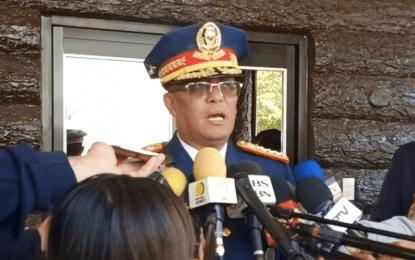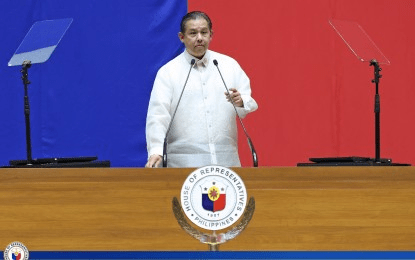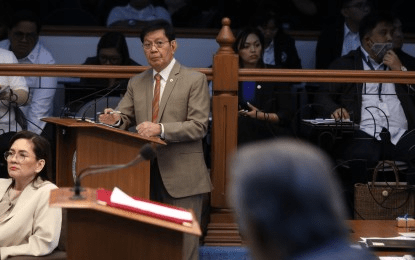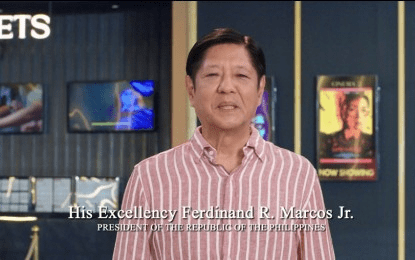By Christopher Lloyd Caliwan
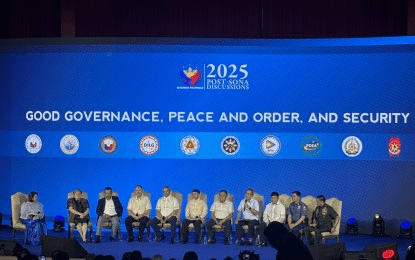
MANILA – Halfway into President Ferdinand R. Marcos Jr.’s tenure, his administration’s bloodless anti-narcotics drive remained effective, with more than 153,000 drug suspects arrested and over PHP80 billion worth of drugs seized from July 2022 to June 2025.
“The drug war is working without killing anyone. Hindi kailangang patayin ang tao para manalo sa drug war (The drug war is working without killing anyone. People don’t need to be killed to win the drug war),” Interior Secretary Jonvic Remulla said during the post-State of the Nation Address (SONA) discussion session in San Juan City on Wednesday.
Remulla lamented the previous administration’s “reward” system in its anti-narcotics campaign and a supposed practice of only submitting a small portion of its drug haul while storing away the rest.
“Ayun ang nakasira sa kultura ng mga law enforcement agencies dahil ginawang rewards ang pagkuha ng droga. So, nilaro nila ang sistema (That was what broke the culture of law enforcement agencies because they made confiscating drugs rewards-based. So, they gamed the system),” Remulla said.
Remulla also cited a drop in the demand and supply of illegal drugs, saying government agencies had seized a total of only 6 tons in the last eight months.
As a result of the low supply, the street value of methamphetamine naturally rose by 35 percent to PHP6,800 per gram.
“Ano ibig sabihin niyan? Nag-curtail na ang supply. Ang demand, lumiliit na rin, pero tumaas ang presyo nang husto (What does that mean? The supply was curtailed. The demand is also going down and the prices are going up so much),” Remulla said.
PDEA data
For his part, Philippine Drug Enforcement Agency (PDEA) Director-General Isagani Nerez, also during the conference, attributed the success of the administration’s anti-drug campaign to the shift to an “enhanced” strategy that “emphasizes human rights.”
To demonstrate this, Nerez underscored how the number of arrested high-value targets went up to 9,689 in the last three years, compared to 7,054 under the first half of the past administration.
“Ito ay SOPs sa lahat ng law enforcement agencies na pagka yan ay may operation at may huli, kailangan isangguni sa departamento ni Justice Sec. Boying Remulla para yan ay umusad ang hustisya (It is standard operating procedure for all law enforcement agencies to refer drug operations and arrests to the department of Justice Secretary Jesus Crispin Remulla so we can poceed with seeking justice),” Nerez said.
Based on PDEA data, the Marcos administration’s anti-drug campaign has so far netted PHP82.79 billion worth of narcotics.
The amount included 11,067.35 kg of shabu; 94.17 kg of cocaine; 141,634 pieces of ecstasy tablets; and 7,526.68 kg of marijuana seized in the last three years.
During the same period, a total of 153,206 drug suspects have been arrested in its 113,815 operations nationwide, and 1,488 drug dens and five clandestine shabu laboratories have been dismantled.
Meanwhile, 29,471 out of 42,000 villages have been declared drug-cleared, while 4,062 are in the process of being cleared.
During his fourth SONA, Marcos acknowledged the speed at which these accomplishments have been achieved.
Marcos vowed that the government would remain relentless in its fight against the illegal drugs trade in the country.
Unified 911 system
Still part of the Marcos administration’s pledge to improve law enforcement service, Remulla said the government’s unified 911 system that offers faster and more accessible emergency response will roll out nationwide in September.
The system guarantees a five-minute response time through ambulance, police personnel, and fire truck deployment from key agencies including the Philippine National Police (PNP) and the Bureau of Fire Protection (BFP).
A notable feature of the new unified 911 system is its regional language support, allowing callers to report emergencies in their native dialects.
“We take the sensitivities in hand. We make sure that in every household, the best way to communicate is through your native language, your mother tongue,” Remulla said. (PNA)

